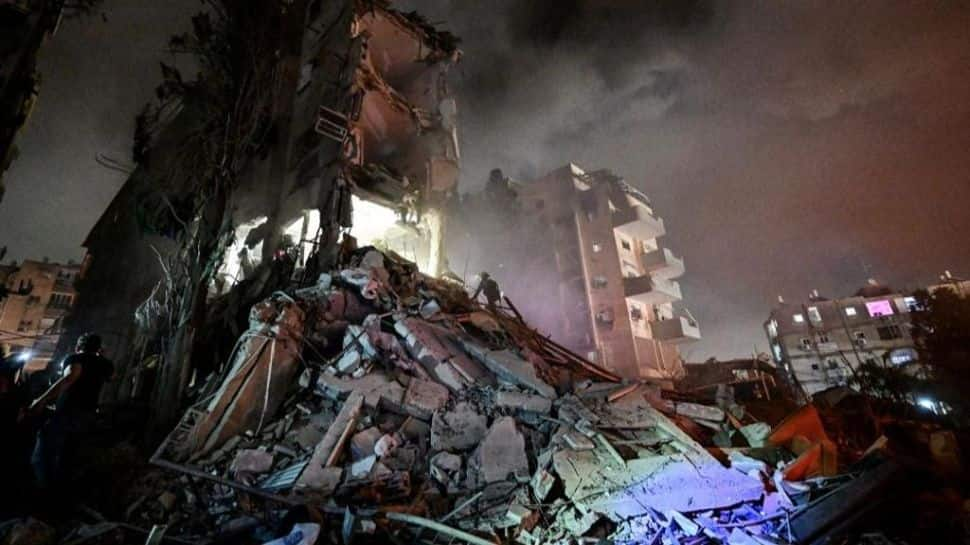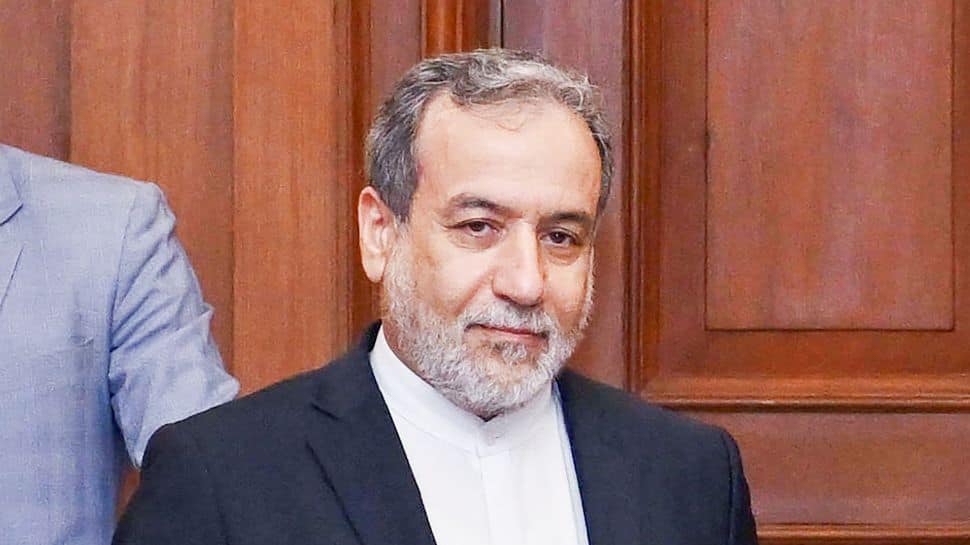Israel’s Warpath Through The Caspian? Why Iran Thinks Azerbaijan Let Tel Aviv’s Jets Use Secret Air Corridor To Bomb Tehran | World News

Iran-Israel Conflict: Tehran is simmering. Another blow. This time, the suspicion does not point to Tel Aviv alone. All eyes are on Baku (Azerbaijan). In back-to-back airstrikes that rattled Tehran and beyond, Israel’s fighter jets appeared to reach deep into Iranian airspace with startling ease. Tehran now wants to know how, and more importantly, from where.
Behind closed doors, Iran’s military and intelligence brass have drawn a line. They say it would have been impossible for Israel to carry out precision strikes without regional help. That help, Tehran claims, came from Azerbaijan. The Caspian Sea corridor is now under scrutiny.
The accusations come in the middle of rising hostilities, and a bruised Iranian leadership still grappling with unrest, economic blows and foreign incursions. President Masoud Pezeshkian has spoken directly to Azerbaijani President Ilham Aliyev. The message was pointed. Iran wants an immediate investigation. Did Israeli jets fly over Azerbaijani territory? Did drones enter from there?
Iran’s envoy to Armenia, Mehdi Sobhani, did not mince words. In a statement, he said, “We have received information that a small number of drones entered Iranian territory from neighbouring countries. Our president asked for a serious investigation. We will wait for the findings.”
He added a warning. “Our enemy does not follow rules. They do not respect borders. Even if Azerbaijan did not give consent, there is a chance Israel used the moment,” he said.
Azerbaijan denied everything. Their foreign ministry hit back hard. Spokesperson Aykhan Hajizada called Sobhani’s statement a “provocation”. The official response was: “Azerbaijan categorically refutes these claims. Our airspace was not used. The allegations lack evidence.”
But the suspicion lingers. For Iran, the long-standing ties between Azerbaijan and Israel have always been a source of discomfort. Quiet, but undeniable. And now, louder than ever.
Since the 1990s, Azerbaijan has traded oil for firepower. Over 60% of Israel’s crude oil flows through Baku. In return, Israel’s defence giants have flooded Azerbaijan with advanced weapons – loitering drones, air defence systems, precision rockets and surveillance aircraft.
The numbers tell a story. Between 2016 and 2021, nearly 69% of Azerbaijan’s arms imports came from Israel. A figure well over $5 billion. Some of those very systems helped Azerbaijan dominate in the 2020 and 2023 Nagorno-Karabakh conflicts.
The deals did not stop there. Reports say Mossad has a quiet presence in Azerbaijan. A forward base. A listening post. Possibly even an airfield ready, if ever needed for a strike across the border. According to Israeli media, the stolen Iranian nuclear archive was smuggled out via Azerbaijan.
Tehran now feels surrounded. Squeezed. Air defence systems in Isfahan and Kermanshah were reportedly hit from the west. Drones may have slipped through from Iraq. But the most direct flight paths – from the Caspian, through Azerbaijan – cannot be ignored.
Iran’s allies – Russia, Armenia and Turkmenistan – are unlikely to offer that access, which leaves one possibility. And that is Baku.
What makes the situation more combustible is timing. Since October 2023, Israel has been fighting on multiple fronts – Gaza and Lebanon. And now, possibly Tehran. Fuel is critical. So are forward operating options. Azerbaijan provides both.
In the larger chessboard of the region, the energy-for-arms pact has become more than a trade. It is a shift in strategy. A deep realignment.
In Tehran, military planners are adjusting. The idea of a “northern front” is no longer fiction. It is a real possibility. One that could carry Mossad drones, air raids or worse.
As accusations fly and diplomats scramble, one thing is clear – this is no longer just about two countries. The Caspian has become a corridor of conflict. And if Tehran’s claims are proven true, it could mark a new phase in an already dangerous shadow war.






